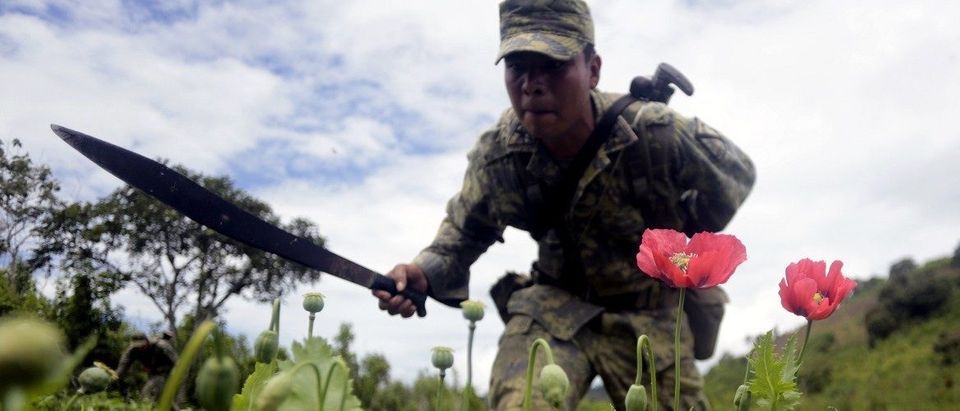Legalizing marijuana on the state-level is endangering America’s stance on the global war on drugs, said retiring Marine Corps Gen. John Kelly in a recent interview.
Kelly said that marijuana legalization in states like Washington, Oregon and Colorado expose the U.S. as hypocritical when trying to lecture countries about the need to stop harder drugs from filtering across the U.S. border, according to an interview with Military Times published Saturday.
“The actual legalization does cause us problems because — the hypocrisy,” Kelly told Military Times. ” … Where you stand is where you sit. So if you’re a Latin American, and we’re harping on them to do more to stop the flow of drugs, they say: ‘Wait a minute. As we look north, the real problem is the demand. So why don’t you do more to stop the demand for drugs … Why would we do more when you seem to be legalizing this stuff?'”
The one exception, Kelly noted, is marijuana for medicinal use.
“I’m not a doctor, but I’m told it has a medical use,” Kelly said. “So whether it’s veterans or anyone else, if it helps those people, then fine. Medicine is medicine. Every medicine is probably illegal unless you take it medicinally.”
Kelly has detailed knowledge on the drug war, having served as head of U.S. Southern Command for the past three years. SOUTHCOM is responsible for training the military forces of Central and South American countries, in order to combat cartels and narcotics distribution lines.
The use of marijuana is increasing in Central and South America, giving cartels in the region a strong incentive to continue production, though a recent report from the United Nations found that cartels specializing in marijuana had lost approximately $3 billion in profit, since recreational pot legalization came into play in Colorado and Washington. Decriminalization is sweeping across the U.S. Uruguay also legalized marijuana in 2013.
But apart from marijuana is the problem of hard drugs. Demand for narcotics like cocaine, heroin and meth, is heavily stacked on the U.S. side. This demand leads to insane profits and also enables other practices like human and weapons trafficking. With higher stakes comes higher levels of violence, which pours fuel onto the fire of the refugee crisis, prompting thousands to stream across the U.S.-Mexico border. U.N. data indicates that Latin America is the most violent region in the world, accounting for 134,519 homicides in 2012.
“If Americans understood,” Kelly said, “what doing a little blow on the weekends — on a college campus or here on Capitol Hill — was doing to Honduras or El Salvador, or what it’s doing to Colombia, I think they’d responsibly realize that this is not a good thing.”
Legal marijuana also places the U.S. in a strange position. On the one hand, states are starting to legalize marijuana, and on the other hand, the federal government is pouring money into counter-narcotics efforts in other countries, which according to Kelly may lead to a sort of disillusionment down south because of the apparent hypocrisy.
Follow Jonah Bennett on Twitter
Send tips to jonah@dailycallernewsfoundation.org.
All content created by the Daily Caller News Foundation, an independent and nonpartisan newswire service, is available without charge to any legitimate news publisher that can provide a large audience. All republished articles must include our logo, our reporter’s byline and their DCNF affiliation. For any questions about our guidelines or partnering with us, please contact licensing@dailycallernewsfoundation.org.


